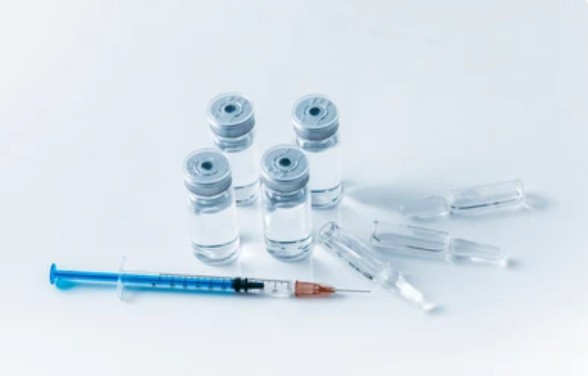Application of DNA & RNA Drug Characterization in Vaccine Efficacy Assessment
Introduction of Vaccine Efficacy
Vaccine efficacy is a critical measure used to determine the effectiveness of a vaccine in preventing a specific disease under controlled conditions. It is expressed as the percentage reduction in disease incidence among vaccinated individuals compared to unvaccinated individuals. A high vaccine efficacy indicates that the vaccine offers strong protection against the targeted pathogen.

Why You Need a Vaccine Efficacy Assessment
Assessing vaccine efficacy is of paramount importance for several reasons.
Accurate vaccine efficacy data helps health authorities gauge the potential impact of a vaccine on disease transmission and public health outcomes. This information aids in designing effective vaccination strategies.
Vaccine developers must provide robust efficacy data to regulatory bodies to obtain approval for distribution and use. This ensures that only safe and effective vaccines reach the market.
Understanding the efficacy of different vaccine candidates during the development phase enables researchers to prioritize the most promising options.
- Monitoring Vaccine Performance
Post-approval, continuous monitoring of vaccine efficacy ensures its continued effectiveness and allows for any necessary adjustments.
Methods of Vaccine Efficacy Assessment
Various methods are employed in vaccine efficacy assessment, each serving a specific purpose.
| METHODS |
DESCRIPTIONS |
| Randomized Controlled Trials (RCTs) |
RCTs are considered the gold standard for vaccine efficacy assessment. |
| Case-Control Studies |
These studies retrospectively compare vaccinated individuals who develop the disease to vaccinated individuals who remain healthy, along with a control group of unvaccinated individuals. |
| Field Efficacy Trials |
Conducted in real-world settings, field trials assess vaccine efficacy under natural conditions, providing valuable insights into real-world effectiveness. |
| Serological Studies |
Serological assays measure the levels of specific antibodies induced by the vaccine |
What We Provide?
Creative Proteomics is a leading provider of specialized DNA and RNA drug characterization services, offers innovative solutions to enhance vaccine efficacy assessment. We are committed to advancing vaccine research through our cutting-edge DNA and RNA drug characterization services. Our team of experts utilizes cutting edge technology to provide the following services.
Potency Assessment
We offer a comprehensive potency testing service that can be used to determine the amount of active ingredient in a vaccine lot to assess its efficacy. For example, we can confirm the amount of active antigenic proteins in each dose of vaccine to ensure that the vaccine triggers an adequate immune response at the time of vaccination.
Forced Degradation Studies
We offer Forced Degradation Studies to study the stability and degradation products of vaccines under stressful environments by simulating unfavorable conditions.
Real-Time Stability Studies
We also offer Real-Time Stability Studies, where we are able to monitor the stability of vaccines, tracking changes in vaccine samples over time under routine storage conditions, including temperature, humidity, and other parameters, to understand their stability over time during storage and use.
Encapsulation Efficiency (LNP) Determination
We provide encapsulation efficiency testing services to measure the efficiency of drug loading in liposomal nanoparticles (LNP). By analyzing the amount of active ingredient in a vaccine sample and the total amount of carrier, the encapsulation efficiency is calculated to assess the effectiveness of the carrier and the efficiency of vaccine delivery.
Conclusions
Vaccine efficacy assessment is an essential step in ensuring the success of vaccination programs. Through the application of DNA and RNA drug characterization services, Creative Proteomics empowers researchers and vaccine developers with valuable data to optimize vaccine design and accelerate the fight against infectious diseases. For inquiries or to learn more about our services, please feel free to contact us.
Our Advantages
- We leverage state-of-the-art technologies to provide accurate and reliable results.
- Our team of skilled scientists and bioinformaticians is dedicated to delivering high-quality data and analysis.
- We tailor our services to meet your specific research needs and goals.
- We understand the importance of deadlines and strive to deliver results promptly.
For research use only, not intended for any clinical use.

